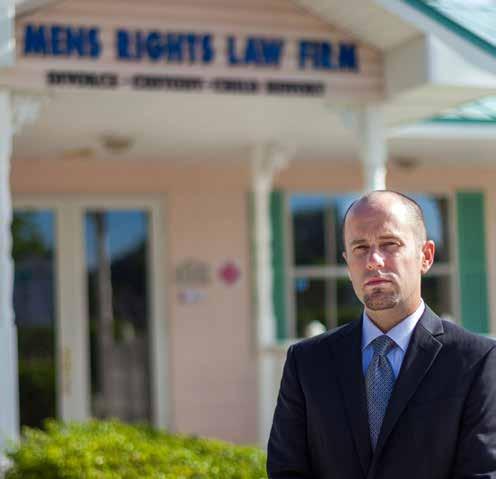
2 minute read
FAMILY LAW CHANGES IN MOTION
of parties in making family law determinations. Importantly, it will require the court to consider the threatening behavior of a parent to another parent, even where the threat is not directly to, or about, the child. It will allow the court to more closely consider the psyche of parents, and their use of their children to harm the other parent, in granting orders of protection.
As family circumstances change, so do the laws that try to keep up with them. If you are a family law practitioner, you should be closely monitoring a few law changes that could occur in the State of Florida this year, and impact your practice.

First, keep an eye on “Greyson’s Law” (Senate Bill 130 and HB 97). Greyson Kessler was a 4-year-old boy who was killed by his father in a tragic murder-suicide in 2021. The father’s behavior was erratic, threatening and dangerous to the mother. As a result, the mother attempted to protect the child using the court system via injunctions, emergency pick-up orders and supervised timesharing between the child and father. However, based on the fact that the threats were directed at the mother, the court denied that there was a direct threat to the child requiring protection, and did not provide the mother relief. The outcome was life-ending.
Current law often requires shared or joint parenting of children when there is no domestic violence towards the child(ren), even if there has been domestic violence between the parents. Greyson’s Law will add violence occurring between parents (only) to the many factors considered when granting parenting time, domestic violence injunctions and ordering parenting plans. Greyson’s Law will require the Court to consider additional conduct
Another game-changing family law bill is Senate Bill 1146. The bill would allow unwed fathers, who acknowledge paternity, to receive the same legal recognition that married fathers receive under Florida law. Currently Florida law is archaic, in that it does not grant rights to a biological father who is not married to the mother of the child (without a paternity action). The unwed mother of the child is the natural guardian of the child, and retains all rights and responsibilities of parenting the child, until such time that a father secures his rights through the court system. Senate Bill 1146 would change the law to automatically make both the unwed mother and father the natural guardians of the child, after the father’s acknowledgment of paternity (i.e. father signs the birth certificate at the hospital).
Florida’s paternity law is complex, with a deep history of cases that attempt to define paternity, legitimacy or illegitimacy of children, and legal parentage of a child born out of wedlock. Senate Bill 1146 attempts to clear up the cases, and establish a father’s rights to parent their children, regardless of marriage.
It’s germane that during Law Week, we draw your attention to ever-changing family laws and how they will impact your practice. At the time of the drafting of this article, Greyson’s Law was heading to the final House committee meetings for approval, and Senate Bill 1146 had cleared the first stop in the Senate and was pending Judiciary Committee review. Check out their status of becoming law and become familiar with these issues that are sure to impact the families you are representing.










